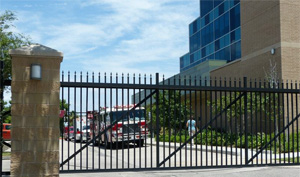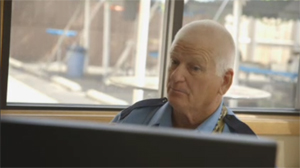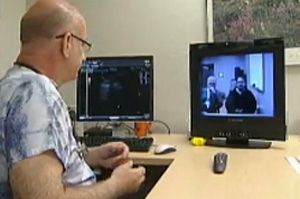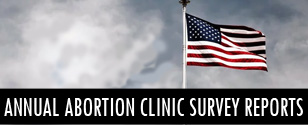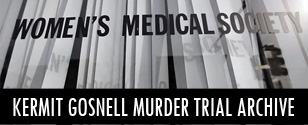Operation Rescue calls on judge to conduct an honest court in the presence of the media to avoid the appearance of impropriety.
Topeka, KS — A judge today stopped a hearing about whether abortion mills should have to cooperate with a criminal investigation by the Attorney General and produce subpoenaed medical records after noticing the presence of AP reporter John Hanna in the courtroom. The judge is considering closing the court to reporters and conducting the hearings behind closed doors.
“Perhaps the judge should be reminded that in America we have open courts for a reason, and that is to assure the public that laws are being followed and there is no monkey-business thwarting justice,” said Operation Rescue President Troy Newman.
Kansas Attorney General Phil Kline is attempting to subpoena medical records from two Kansas abortion mills, Planned Parenthood in Kansas City and George Tiller’s Women’s Health Care Services in Wichita, in a criminal investigation he is conducting into illegal late-term abortions and the illegal concealment of child rape. The abortion mills have resisted the subpoenas citing privacy considerations of their patients.
In February, the Kansas Supreme Court ruled that Kline’s subpoenas could be reissued, if the patient’s names were redacted from the files.
“Secrecy in court proceedings can lead to corruption and injustice, something that cannot be tolerated in a free society, “ said Newman. “Operation Rescue urges Shawnee County District Judge Richard Anderson to conduct hearings openly and in the presence of the media to avoid any appearance of impropriety.”
________________________________
Kline, clinics back in court over records but case stalled
JOHN HANNA, Associated Press
May 5, 2006
TOPEKA, Kan. – Lawyers for two abortion clinics and attorney general’s office returned to court Friday in a legal battle over access to patient records, but a judge stopped the proceedings because a reporter was present.
Shawnee County District Judge Richard Anderson said the presence of an Associated Press reporter in the courtroom raised questions about whether the proceedings should be open to the public. Anderson gave the parties – and AP – until 5 p.m. Monday to file arguments on that issue.
The case pits Attorney General Phill Kline against clinics operated by Dr. George Tiller in Wichita and Planned Parenthood of Kansas and Mid-Missouri in Overland Park. Kline first sought access to information from patient records in 2004; Anderson subpoenaed 90 records at Kline’s request, and the clinics asked the Supreme Court to intervene.
The Kansas Supreme Court ruled in February, questioning whether Kline was on solid legal ground in seeking the records. It sent the case back to Anderson, directing him to be more stringent about protecting patients’ privacy but leaving open the possibility that Kline would get at least some information.
Kline has said repeatedly he believes the records contain information that will help him prosecute child rape cases and evidence of potential violations of state law by the clinics. The clinics have accused Kline of going on a fishing expedition, because of his long-standing opposition to abortion.
Anderson said from the bench that he is concerned the release of information about the case could “distract” from the legal issues. He said when he has read previous news reports, the case seemed to be “something I don’t recognize.”
“To the extent, there is spin placed on it in the public, it complicates the role the court is required to play,” Anderson said.
As for the purpose of Friday’s hearing, Anderson said from the bench only that, “The court has made preparations as required by the Supreme Court.”
Lee Thompson, a Wichita attorney representing Tiller’s clinic, referred in court to a “reissuance” of subpoenas but said nothing after the hearing about its intended purpose. Other clinic attorneys and Kline’s representatives also declined to comment.
The clinics said they’re trying to protect patients’ privacy in resisting Kline’s attempts to gain access to the records. Kline has said he’s not trying to learn the patients’ identities or delve into cases in which minors have had consensual but illegal sex under Kansas law.
The Supreme Court said that if Anderson believed Kline is on solid legal ground in seeking the records, the judge must allow attorneys for the clinics to remove information that could identify patients. Anderson had said a doctor or doctors suggested by Kline would examine the records before the judge determined what Kline saw.
The Supreme Court also ordered Anderson to appoint an attorney and at least one doctor to review the documents further in private, to determine whether additional information should be redacted.
Present for Friday’s hearings was Stephen Cavanaugh, a Topeka attorney, who said Anderson had appointed him to act on behalf of patients whose records were subpoenaed.
Seeing the AP reporter in the courtroom, Anderson had attorneys discuss whether the proceedings should be public.
The case started when Kline’s office initiated a court-supervised proceeding, known as an inquisition, in which a prosecutor can compel individuals to testify under oath and produce records. Normally, those proceedings are closed.
Kline’s chief deputy, Eric Rucker, told Anderson the proceedings should remain closed but acknowledged there’s already widespread public knowledge the case exists. Also, he said, the attorney general’s office has some discretion in releasing information to the public but would be “circumspect.”
Topeka attorney Pedro Irigonegaray, representing the Planned Parenthood clinic, called Rucker’s comment disturbing and said if Kline is allowed to release information, “That rapidly escalates out of control.”
Assistant Attorney General Stephen Maxwell also said the clinics made the attorney general’s investigation public in filings with the Supreme Court. Irigonegaray later replied: “There’s not a shred of truth in that.”
Irigonegaray also noted that when he asked the AP how it knew about Friday’s hearing, the AP did not divulge the source of the tip.
“It is ironic that the press respects the issue of privacy more than the attorney general’s office,” Irigonegaray said.
Anderson asked the AP whether it wanted to make a statement and this reporter said no, except to say that AP would ask that proceedings be open because of statewide and national interest in the records case.
—
The Supreme Court case is No. 93,383.

